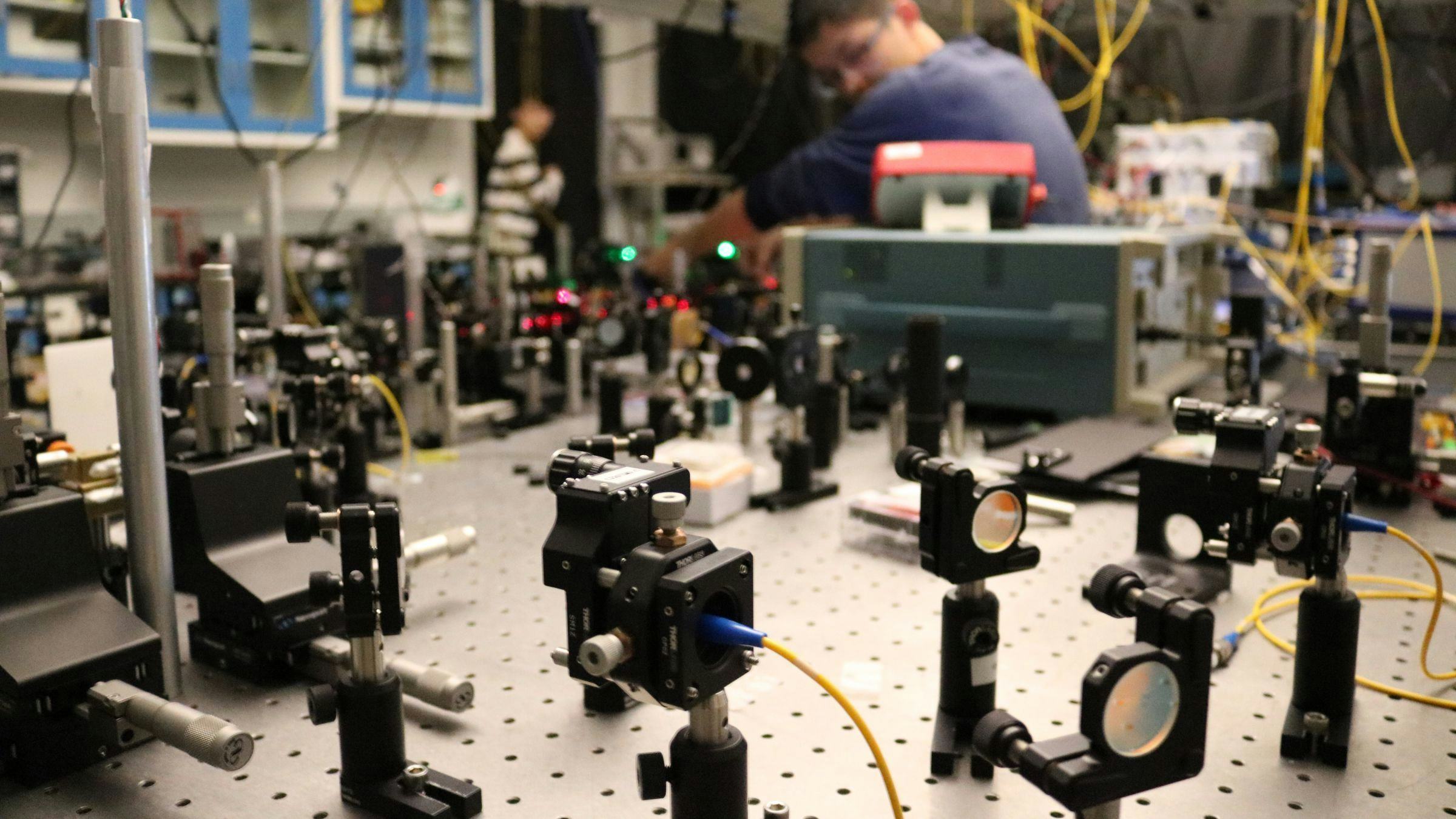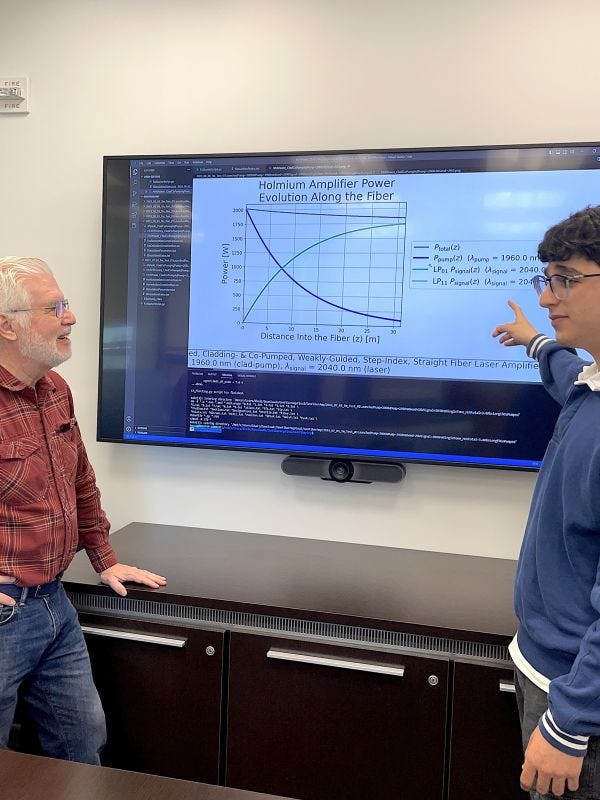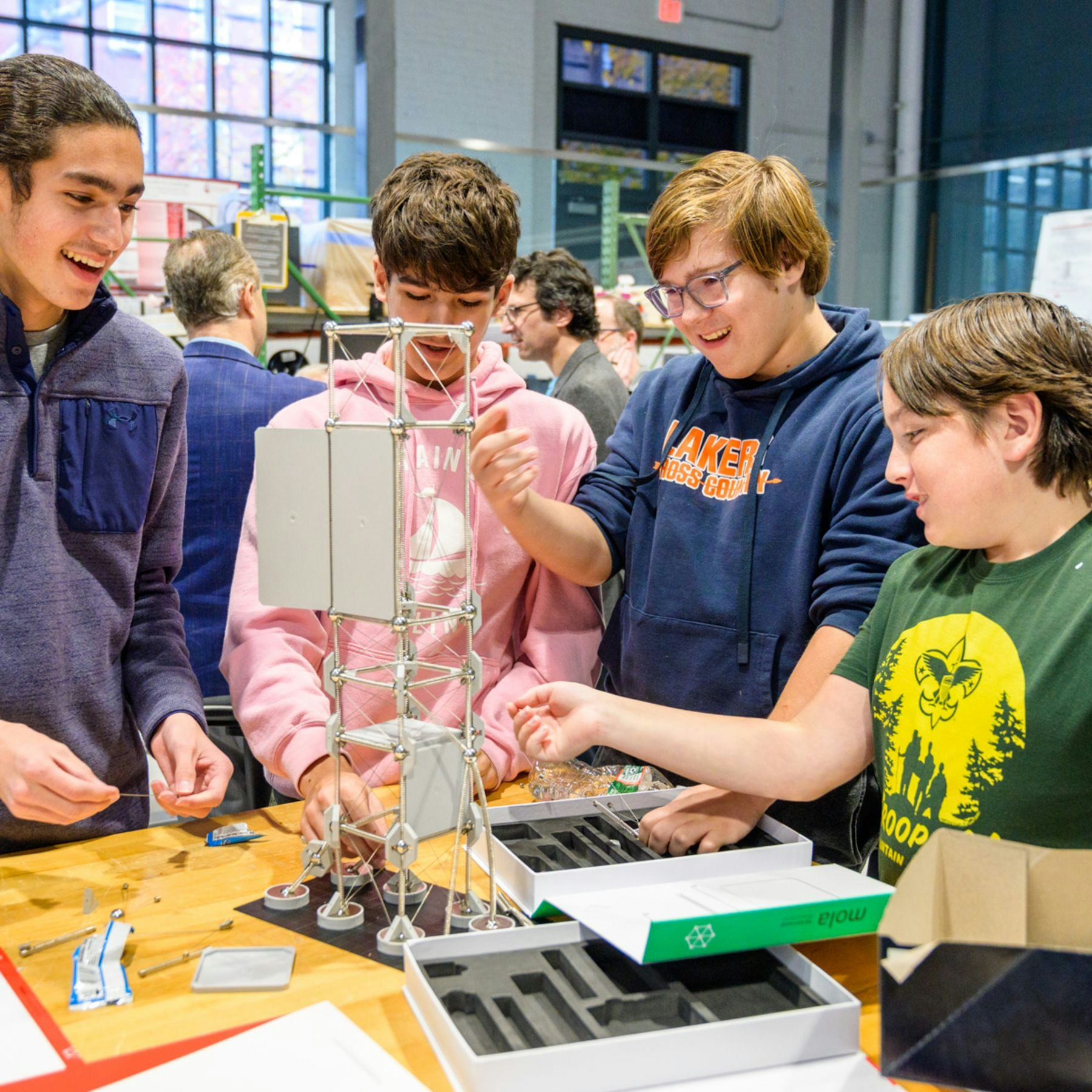
Department of Physics
Academic Programs
Catalyze Your Career

Announcements
Stevens Facts

Learn About Our Research
Our faculty and students conduct formative research and develop technology applications in a broad spectrum of fields, including atomic, molecular and optical physics, quantum information science, and remote sensing and graphene technologies.

STEM Outreach at the Schaefer School
The Charles V. Schaefer, Jr. School of Engineering and Science is dedicated to science, technology, engineering, and math education and enrichment at all levels. Our numerous STEM outreach and education programs are designed to instill a love of science and technology in both teachers and students from K - 12 throughout the New York and New Jersey area, and beyond.
Get Social With Us
What’s happening in the Department of Physics at Stevens? Follow us on Instagram and LinkedIn for student life, faculty highlights and research in action.
Department News
Upcoming Seminars & Events
Department Leadership
Meet the faculty and staff leading the Department of Physics. Find contact information for department administrators, academic advisors and more.





